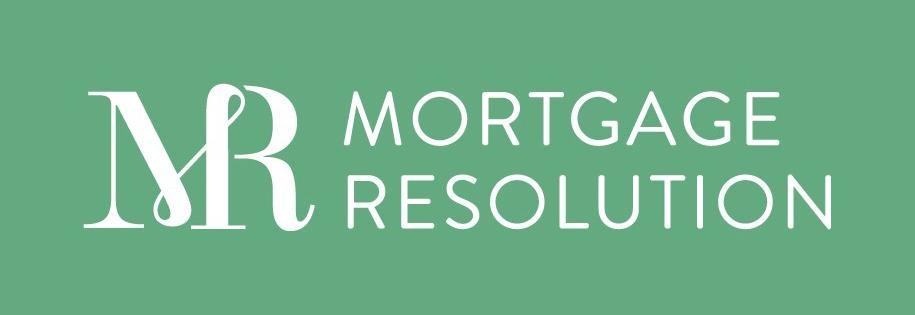Mortgages for First Time Buyers
Download our guide for expert advice from Mortgage Resolution to help first-time buyers step onto the property ladder.
Download our First Time Buyer Guide Here
At Mortgage Resolution, we understand that buying your first home can feel overwhelming. That’s why we’ve created a simple, step-by-step guide to help you navigate the mortgage process with ease. From saving for a deposit to securing the best mortgage deal, our First-Time Buyer Guide covers everything you need to know.
What’s Inside the Guide?
- How to save for a deposit
- Choosing the right mortgage
- Boosting your chances of approval
- Understanding the costs
FAQ's
Take a look at some frequently asked questions here
What is the minimum deposit required for a first-time buyer mortgage?
In the UK, first-time buyers typically need a minimum deposit of 5% of the property’s purchase price. However, providing a larger deposit—such as 10% or more—can give you access to better mortgage rates and increase your chances of approval.
How much can I borrow as a first-time buyer?
The amount you can borrow depends on several factors, including your income, outgoings, credit history, and the lender’s criteria. Generally, lenders offer mortgages up to 4 to 4.5 times your annual income, but this can vary based on individual circumstances.
What government schemes are available for first-time buyers?
Several government schemes assist first-time buyers in the UK:
- Help to Buy: Equity Loan: The government lends you up to 20% (40% in London) of a new-build home’s value.
- Shared Ownership: Buy a share of a property (between 25% and 75%) and pay rent on the remaining portion.
- First Homes Scheme: Offers new-build homes at a discount of at least 30% compared to market value.
What is the Help to Buy scheme and how does it work?
The Help to Buy: Equity Loan scheme helps first-time buyers purchase new-build homes. You contribute a minimum 5% deposit, and the government provides a loan of up to 20% (40% in London). You then secure a mortgage for the remaining amount. The government loan is interest-free for the first five years.
How can I improve my chances of getting approved for a mortgage?
To enhance your approval odds:
- Improve Your Credit Score: Pay bills on time and reduce existing debts.
- Save a Larger Deposit: A higher deposit can access better rates.
- Maintain Stable Employment: Lenders prefer consistent income.
- Limit Credit Applications: Avoid taking out new credit before applying.
- Provide Accurate Documentation: Ensure all financial records are up-to-date.
What is a Mortgage Agreement in Principle (AIP)?
A Mortgage Agreement in Principle is a statement from a lender indicating how much they’re willing to lend you based on your financial situation. It’s not a guarantee but shows sellers you’re a serious buyer.
What fees are involved in buying a house as a first-time buyer?
Common fees include:
- Stamp Duty: Tax on property purchases over a certain threshold.
- Solicitor/Conveyancer Fees: Legal work for the transaction.
- Mortgage Arrangement Fees: Charged by the lender for setting up the loan.
- Survey Costs: Assessing the property’s condition.
- Removal Costs: Moving your belongings to the new home.
How long does the mortgage application process take?
The process typically takes between 2 to 6 weeks, but it can vary. Factors influencing the timeline include lender processing times, the complexity of your application, and how quickly you provide required documents.
Can I get a mortgage with bad credit as a first-time buyer?
Yes, but it may be more challenging. Lenders might require a larger deposit and offer higher interest rates. Working with a specialist mortgage broker can help find suitable lenders.
What is the difference between fixed-rate and variable-rate mortgages?
- Fixed-Rate Mortgages: The interest rate stays the same for a set period, providing predictable repayments.
- Variable-Rate Mortgages: The interest rate can fluctuate, affecting your monthly payments.
Do I need a mortgage broker as a first-time buyer?
While not mandatory, a mortgage broker can:
- Provide Expert Advice: Help you understand complex options.
- Access More Deals: Brokers often have access to exclusive products.
- Save Time: Handle paperwork and negotiations on your behalf.
What is Stamp Duty, and do first-time buyers have to pay it?
Stamp Duty Land Tax (SDLT) is a tax on property purchases above a certain value. First-time buyers are exempt up to £425,000 (as of September 2022). For properties between £425,001 and £625,000, a reduced rate applies.
How does the mortgage repayment process work?
Repayments are usually made monthly and cover:
- Capital Repayment: Reduces the amount you owe.
- Interest Payment: Covers the cost of borrowing.
Over time, you’ll pay off both the loan amount and the interest.
What documents do I need to apply for a mortgage?
You’ll typically need:
- Proof of Identity: Passport or driver’s license.
- Proof of Address: Recent utility bills or bank statements.
- Income Verification: Payslips or tax returns.
- Bank Statements: Usually from the last 3-6 months.
- Details of Debts: Information on loans or credit cards.
What is the mortgage affordability assessment?
Lenders assess your ability to repay the loan by evaluating:
- Income: Salary, bonuses, and other earnings.
- Outgoings: Monthly expenses and existing debts.
- Stress Testing: Ensuring you can afford payments if interest rates rise.
Can I use gifted money for my mortgage deposit?
Yes, but you’ll need a gift letter from the giver stating:
- The money is a gift, not a loan.
- They have no interest in the property.
What is an Early Repayment Charge (ERC)?
An ERC is a fee charged if you overpay or pay off your mortgage early during a specified period, usually during a fixed-rate term. Always check your mortgage terms before making extra payments.
How does the Shared Ownership scheme work?
You purchase a share (25%-75%) of a property and pay rent on the remaining portion. Over time, you can buy additional shares—a process known as staircasing—until you own the property outright.
What is a mortgage valuation survey?
A basic inspection conducted by the lender to confirm the property’s value matches the loan amount. It’s not a detailed survey and may not identify structural issues.
Should I get a homebuyer’s survey?
Yes, it’s advisable. A homebuyer’s survey provides a detailed assessment of the property’s condition, highlighting potential issues that could be costly to repair.

Chester: 01244 478708 • 4 Chantry Court, Obsidian Offices, Chester, CH1 4QN
London: 020 4524 5550 • 3rd Floor, 86 – 90 Paul Street, London, EC2A 4NE
info@mortgageresolution.co.ukMortgage Resolution Limited. Registered in UK. Company No. 13762663. FCA No. 972467
